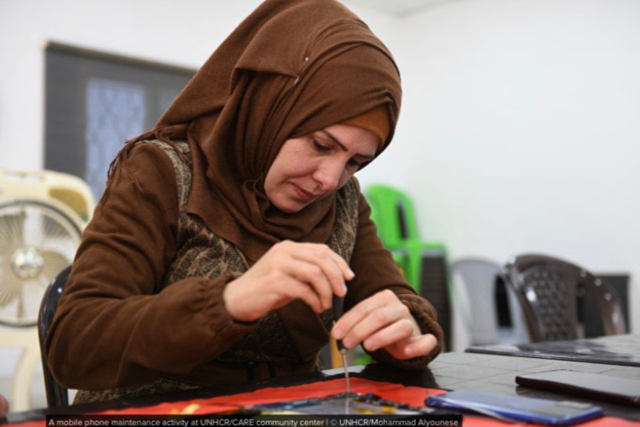AMMAN — UNHCR, the UN Refugee Agency, has reduced the number of households in Jordan receiving cash assistance for basic needs from 33,000 to 30,000 this year due to funding shortfalls, according to a recent report.
The report noted that the cuts in cash assistance has increased the “known number of families at risk of eviction” by 66 per cent from December 2022 to February 2023, and has forced one in three households to change their place of residence.
The agency has so far obtained 31 per cent, or $120 million, of its $390 million funding requirements in Jordan for 2023, showed the report, titled “A Threat to Lives, Dignity and Hope: The Implications of Underfunding UNHCR’s Activities in 2023”.
“UNHCR faces a dire situation with severe implications for its ability to fulfil its mandate effectively. Mounting global threats and diminishing humanitarian budgets are widening the gap between available resources and needs.
“Political unrest and violent conflicts have unleashed refugee and displacement crises of unparalleled magnitude around the world, endangering lives, increasing humanitarian need, and driving instability,” the report stated.
Jordan hosts the second-highest share of refugees per capita worldwide, with roughly 740,000 refugees registered with UNHCR.
The report pointed out that underfunding has forced UNHCR to reduce the number of services it offers, a move that is exasperating the “pre-existing vulnerabilities of refugees in Jordan”.
The report showed that in 2023, UNHCR is targeting 2,700 refugees with community based and innovative education services, compared to 7,700 refugees in 2022, marking a 64 per cent decrease in beneficiaries.
Moreover, the agency will only support 620 refugees in entering wage employment and self-employment in 2023, compared to 1,660 refugees in 2022, which marks a 62 per cent decrease in beneficiaries, the report added.
Refugee households have undergone a series of “economic shocks” over the past few years as a result of the COVID-19 pandemic, job losses and increases in the prices of commodities and utilities due to the war in Ukraine and inflation, the report said.
“Two thirds of refugees have reported that their financial situation has worsened the last 12 months,” it noted.
The report also indicated that UNHCR has seen an increase in the number of families resorting to emergency coping strategies, such as child labour, due to growing poverty and funding reductions. Such funding reductions will compromise the agency’s ability to provide sufficient child protection services, the report said.
Other areas of support that have been cut or significantly underfunded include health and shelter-related services. For example, UNHCR has reduced the number of health clinics it supports in Amman from five in 2022 to two in 2023, and it was only able to repair 1,150 shelters this year compared to 1,920 shelters in 2022, according to the report.
“Another growing concern is maintaining the favourable protection space. While Jordan has been very hospitable towards refugees and asylum seekers, the government needs support in the refugee response, which will help ensure a continuous access to protection and services as the displacement situation becomes increasingly protracted,” it stated.
The report noted Jordan’s efforts in ensuring that refugees are included in national systems, noting that over 83 per cent refugees in the Kingdom live in Jordanian communities rather than camps.
